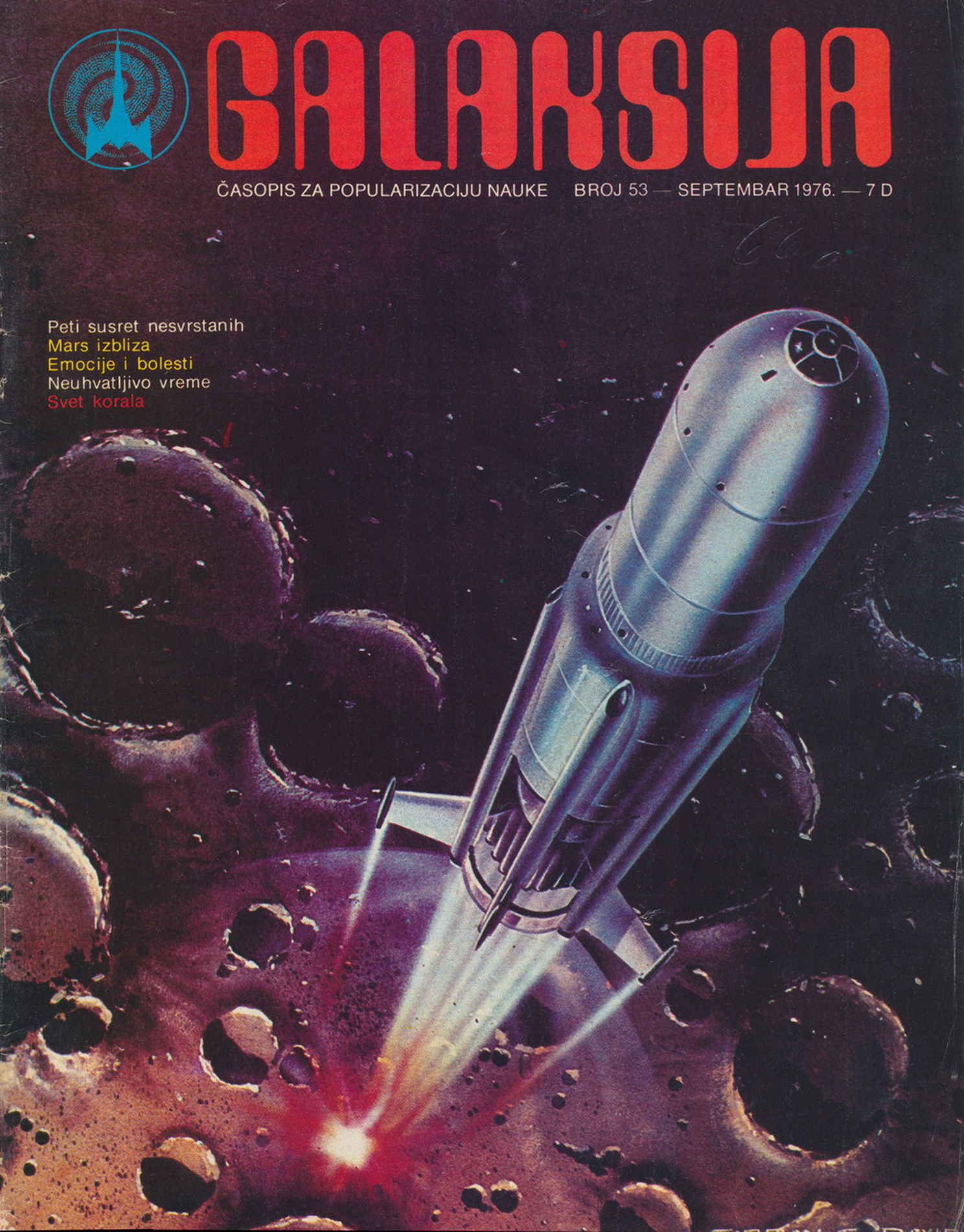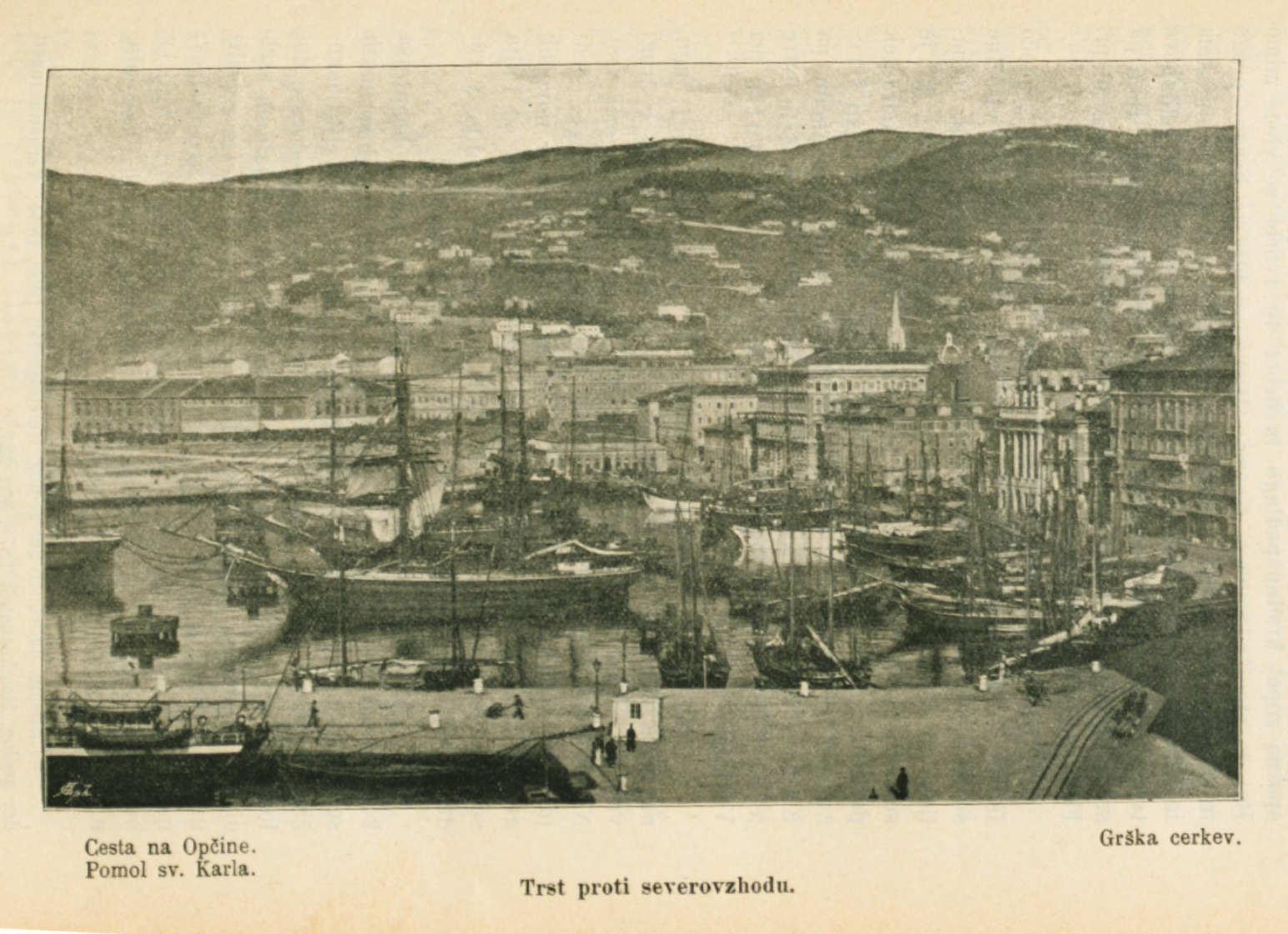How can oysters improve coastal sustainability? What is "ice-learning" and what can the ice cylinders from Greenland and Antarctica tell us about climate change? Do fish have active vision? How fast will new methods for detecting premalignant oral lesions improve prospects for obtaining early cancer diagnosis, leading to higher survival rates? What can we learn about present-day media manipulations based on the investigation of the history of cinema and border changes in the North Adriatic? What do the untold stories of colonial women, enslaved cooks and their food cultures reveal about the relationships between gender, race, and class? And finally, what do these issues have in common? These questions, addressing some of today's most pressing scientific and societal matters, have been investigated within post-doctoral research projects financed through Marie Skłodowska-Curie Actions (MSCA) under the auspices of the Horizon Europe funding programme (former Horizon 2020). The European Commission is currently welcoming new ideas for projects that have the potential to advance our society and science. The deadline for proposal submissions is September 11, 2024.
MSCA fellowships offer the best conditions among all post-doctoral fellowships in Europe: they are entirely research oriented, have excellent networking opportunities and no teaching commitments, as well as a monthly salary of approximately 5,000 EUR gross, supplemented by family and mobility allowances, and a separate budget for research and networking costs. They are also among the world's most competitive fellowships. For instance, in 2023, 8,039 applications were submitted. The average acceptance rate is between 12 and 15%, and a significant number of highly rated proposals do not receive funding due to budget constraints. The fellowship's principal objective is to "support researchers' careers and foster excellence in research", by significantly improving recipients' career development while also contributing to advancing research and innovation (RI). The RI contribution can easily be evaluated by the numbers. Since its establishment in 1996, MSCA has financed more than 140,000 excellent (post-)doctoral scholars, including Nobel Prize Winners chemists Stefan W. Hell (2014) and Emmanuelle Charpentier (2020). However, the programme's success in terms of researchers' career advancement is debatable and harder to measure.
This is because MSCA cannot be dissociated from academia as a whole, and academic precariousness is deeply rooted in the system and difficult to combat. The global lack of permanent positions combined with the growing introduction of neoliberal practices in higher education has been the subject of discussion both in the general press and academic publications (Burton and Bowman 2022; Vatansever 2020; Jovanovic 2018). Constant work overload, generally low salaries (depending on academic rank and country of hire), budget cuts, and various problems caused by the neoliberal approach to education have led to some radical forms of revolt including strikes, protests, student occupations and other forms of political action (Burton and Bowman 2022), as was recently seen at Goldsmiths. But these actions have been in vain.
The issues of job insecurity and (limited) career prospects for scholars are also regularly tackled within the Marie Curie Alumni Association. Gathering more than twenty-one thousand (former) MSCA fellowship recipients, the association represents one of the major platforms for shaping science policy in Europe. Among the themes examined at its Tenth Jubilee Conference in Milan last March was possible ameliorations within MSCA. In this context, it is worth posing the question of the role of one of the world's most prestigious post-doctoral funding schemes in light of the increasingly alarming problem of academic precariousness. Is MSCA indeed a steppingstone towards career stability, or just a stable, almost luxurious phase in an extremely problematic system of perpetual and self-sustainable precarity? What are the possibilities that this programme really provides for obtaining permanent employment and what are its limits?
The basics: from eligibility to contract
Open to scholars from all research areas, MSCA funding programme is organised around three main pillars: training, excellence, and international mobility. The tandem of training and excellence means that the programme targets major experts in their fields, who are able to identify their own weaknesses or, in other words, the skills they would like to improve through training at the host institution. This could involve entering a new academic discipline or improving linguistic or other transferable skills. The international mobility criterion requires that fellows carry out their research in a country where they have not resided for more than twelve months in the thirty-six months prior to the call deadline. In terms of destination, there are two types of fellowships: the European Fellowship (EF) and the Global Fellowship (GF). Awarded for a period of up to two years, EFs are granted to qualifying scholars of any nationality who wish to conduct their research in the European Union or in a Horizon Europe associated country. GFs last for three years: two years at a non-European partner institution and one in a European institution. The candidates usually choose an institution in the US or Canada due to the prestigiousness of North American universities, but other countries are welcome as well as long as they are not associated with the programme. Unlike EFs, only EU nationals and long-term residents of the EU can apply for the GF. The chief eligibility requirement for both fellowships: having no more than eight years of post-PhD research experience. This does not include periods spent on parental leave or outside academia, which means that the eight-year time limit may be extended in cases of a career break or having a new-born.
The project is evaluated on the basis of the following three categories – excellence, impact, and implementation. The proposal should be innovative and written in such a way that an evaluator who is not from the same field as the candidate can comprehend its content and value. The project should also be well-planned – most of the proposals fail at the impact and implementation sections although they obtained a maximum score in the excellence section (see MSCA Handbook). If the application is successful, the host institution becomes the grant beneficiary and uses the funds to employ the researcher for the duration of the fellowship. Monthly spending is divided into the following categories: living allowance (salary), mobility allowance, family allowance (if applicable), and research and networking budget. The institution's management costs are also covered.
The grant agreement requires respect for labour rights and adequate financial compensation for work performed. The beneficiary must employ the researcher under a contract with full social security coverage, including "sickness, parental, unemployment and invalidity benefits, pension rights, benefits in respect of accidents at work and occupational diseases" (Horizon Europe, Work Programme [WP], MSCA 2023–2025, p. 110). Depending on the host institution, the fellows are usually not supposed to work for more than seven to eight hours a day, nor on weekends and public holidays, at least not officially. They are also expected to work exclusively on the research project and are not allowed to receive other income for activities carried out in the frame of the action (Grant Agreement [2023], Chapter 4). Thus, the grant agreement ensures that fellows focus exclusively on their projects and that they are not exploited by the host institution as free labour. The concept is to improve the fellows' future employability by guaranteeing good work conditions and combining researchers' existing expertise with the top-quality training of the world's leading institutes. In order to enhance these prospects, collaboration with the non-academic sector is strongly encouraged. Accordingly, it is possible for applicants to request six additional months on the contract in order to spend them in a non-academic organisation (WP 2023–2025, MSCA, p. 32).
In short, one might say: finally a contract that not only enables but requires complete commitment to the research task and takes into account researchers' family-career balance and future employment. A rare find in the sea of temporary university contracts that typically include countless teaching hours and administrative duties, not necessarily with optimal (financial) conditions. In addition, the training component of the fellowship and the diversity of networking opportunities, from industry to non-profit organisations and public administration, should inevitably improve fellows' careers. The MSCA thus represents a bright spot in a bleak world of limited opportunities, especially in the humanities where jobs are particularly scarce.
But…
Two to three years to complete a project, acquire new contacts, knowledge, and skills, and all under the extremely reputable label that bears the name of the famous scientist: sounds great, but how realistic is it? The constraints go beyond what could be mentioned in the proposal's risk assessment section. The complexity of the academic ranking system and the temporary nature of most of higher-education contracts impose the need for scholars to be constantly visible through publishing, lecturing, and conferences. The situation is particularly challenging in the social sciences and humanities because of the slowness of the writing and publishing process and the scarcity of (permanent) positions. Consequently, the first year of the contract is often spent completing previously started work, usually related to the preparation of a book for publication. Unless the fellow is already on tenure track, the final year is often used for development of the application for the next job. This is an arduous process. Writing a solid research proposal requires an average of four to six months of work for several hours a day. An application for an (associate) professor position is no less demanding. This means that the objective of focusing solely on the project in question and doing so within normal working hours, remains theoretical. The situation is additionally complicated by various logistical and administrative obligations related to the international mobility requirement. Obtaining a visa and finding accommodation in the EU and North America can be particularly challenging for researchers from the Global South, revealing inequalities between fellows depending on where they are from.
In addition, all of this takes place in financial conditions that are not necessarily as optimal as they appear on paper. For instance, the approximate amount of EUR 5,000 gross for the living allowance can easily drop below EUR 2,000 net, depending on the host country's correction coefficient and tax regulations. Therefore, it is advisable that the applicants ask in advance what to expect when choosing the host institution, especially if they are moving with a family, which implies higher costs and more complicated logistics. Nevertheless, isn't the host institution supposed to be selected as the best fit for a specific research theme in terms of supervision, scientific environment, and equipment that it can offer?
Sometimes the promises that institutions make to attract candidates to apply for the grant under their auspices also play a role when choosing the host. The MSCA is a prestigious "currency" not only because it boosts the researcher's career, but also because it enhances the reputation of the host institution. When competing for candidates, some universities advertise that the winners of a global grant (GF) will be hired permanently after the fellowship. What is usually not highlighted is that this is a possibility, not an obligation. And, as a possibility, it is not necessarily feasible, yet alone assured. The results of MSCA end-of-fellowship evaluation questionnaires (2024) show that the vast majority (79% of the 1,840 interviewed former fellows) did have employment in the immediate post-grant period. Yet, the document does not specify if these were tenured academic positions. A permanent position post-fellowship is thus by no means guaranteed.
Given the uncertainty of the academic job market, as mentioned earlier, the MSCA funding programme aims to enhance the fellows' employability in a wider context. Yet the transition from scholarship to industry is not necessarily easy to navigate as is obvious from the emergence of many consulting agencies that assist doctorate holders in that effort (After Academia, From PhD to Life, etc.). This means that by insisting on the non-academic component of the fellowship, MSCA is acknowledging the reality of the job market and adapting to it. However, while academia is characterised by the lack of employment and funding, outside of academia the laws of the market apply. Repositioning toward industry might be promising for scholars in natural sciences, but options are fewer for scholars in the social sciences and humanities (SOC). The share of MSCA grantees reporting experience in the non-academic sector during their fellowship is the highest in SOC (35%), but this is still a relatively low percentage and there is no information on the number of former fellows who actually started a non-academic career after their project. Finally, when it comes to humanities, even if such researchers wanted to move to industry, the question arises as to what "industry" is when it comes to someone who deals with, for example, cultural studies. Opportunities are often reduced to jobs in cultural institutions, which, similar to universities, are often financed by public funds. In such cases, therefore, it is a question of transitioning from one precarious "industry" to another, not transitioning from precarity to stability. And even if this weren't so, if all scholars changed their profession, who then would work in higher education?
Investing in education, culture, and science is the foundation of a healthy society. But such investment must be continuous, permanent, and serve to change the existing system of precariousness, not maintain it. This is why it is crucial not only that the research projects such as those financed by MSCA exist, but also that those who conduct them obtain a higher level of financial and social security in the long run. Most of the enumerated weaknesses of MSCA are a problem in all short-term academic positions, and not in this one in particular. Yet, if this fellowship, considered one of the best in the world in terms of financial compensation, training, and dedication to the research project, cannot combat these problems, how will the others be able to do so?
MSCA is well-intended, but in collision with the reality of individual countries, institutions, and industries, and the general problem of academic contract hopping, its scope of influence has limits. While the programme undoubtedly contributes to the improvement of fellows' skills and careers, academic precarity as such threatens the very possibility of stable development of science and makes it virtually impossible to achieve more ambitious goals. This is because the precariousness of academic work is not only a matter that effects the material and social security of individual academics, but it effects society as a whole. Only when scholars are able to focus on their work with their full capacities, unburdened by the stress of constantly looking for a new job or chasing the rankings in order to be able to do so, will society be able to truly benefit from their commitment to the development of science, technology, and intellectual thought in areas that range from ecology to health to culture. Only if the vicious cycle of temporary contracts ends will scholars have less reason to leave academia, and instead continue to pass on their knowledge to future generations, and in doing so provide a lasting benefit to society. We need long term solutions for short term contracts. If not, what is the future of education?
* I would like to thank to Dr. Anna Maria Rosinska whose phrasing "privileged precariat" has inspired the title of this article.














